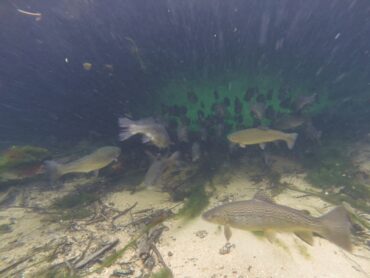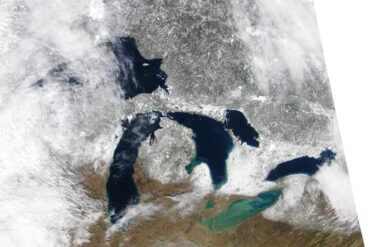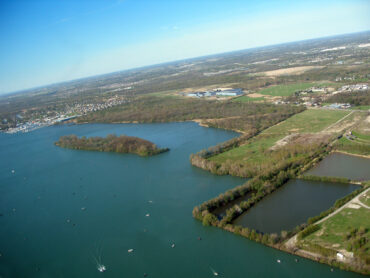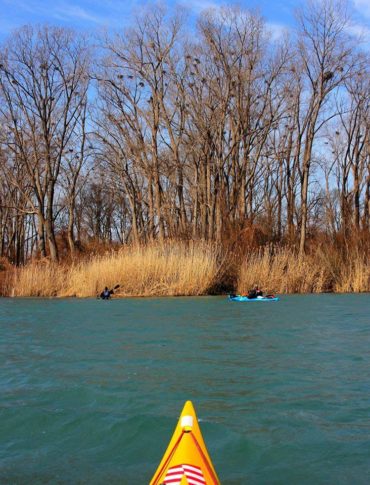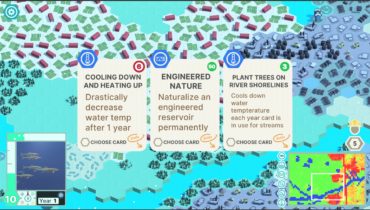-
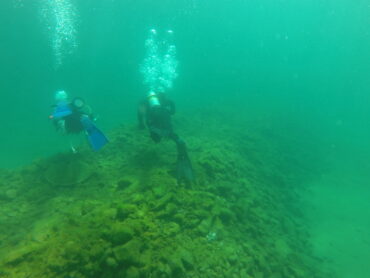 CollaborationFeature HomepageFish, Birds and AnimalsHabitat RestorationHistory and CultureLake HuronLatest NewsMichiganNewsRecreation and TourismResearch, Data and TechnologyScience, Technology, ResearchShipwrecksWater Quality and Restoration Efforts
CollaborationFeature HomepageFish, Birds and AnimalsHabitat RestorationHistory and CultureLake HuronLatest NewsMichiganNewsRecreation and TourismResearch, Data and TechnologyScience, Technology, ResearchShipwrecksWater Quality and Restoration EffortsArtificial reefs bring wild lake trout to Lake Huron
-The constructed reefs are likely to be adequate for fish to breed and reproduce indefinitely.
-
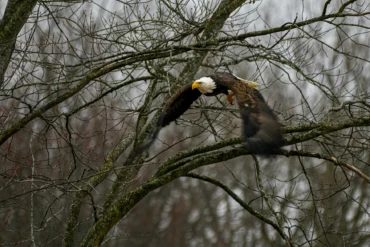 CollaborationFish, Birds and AnimalsForests and PlantsGreat Lakes News CollaborativeHabitat RestorationLake HuronLatest NewsMichiganNewsScience, Technology, ResearchWater Quality and Restoration Efforts
CollaborationFish, Birds and AnimalsForests and PlantsGreat Lakes News CollaborativeHabitat RestorationLake HuronLatest NewsMichiganNewsScience, Technology, ResearchWater Quality and Restoration EffortsMulti-million dollar restoration projects proposed for the Saginaw Bay watershed; paid with settlement money from corporate polluters
-Ten restoration projects have been proposed, including wetlands and other wildlife habitats.
-
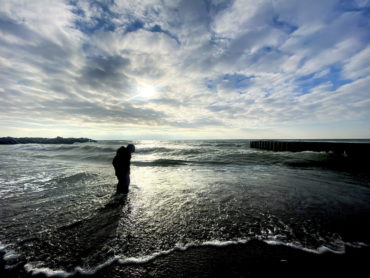 Algae BloomsAPClimate ChangeFeature HomepageFish, Birds and AnimalsHabitat RestorationLake HuronLatest NewsMichiganNewsProtectResearch, Data and TechnologyScience, Technology, ResearchWater Quality and Restoration Efforts
Algae BloomsAPClimate ChangeFeature HomepageFish, Birds and AnimalsHabitat RestorationLake HuronLatest NewsMichiganNewsProtectResearch, Data and TechnologyScience, Technology, ResearchWater Quality and Restoration EffortsScientists: Atmospheric carbon might turn lakes more acidic
-The Great Lakes have endured a lot the past century, from supersized algae blobs to invasive mussels and bloodsucking sea lamprey.
-
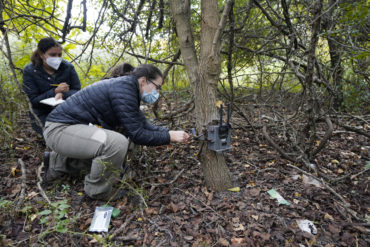 APChicagoClimate ChangeDetroitFeature DetroitFeature HomepageFish, Birds and AnimalsForests and PlantsHabitat RestorationIllinoisLatest NewsMichiganNewsProtectRecreation and TourismResearch, Data and TechnologyScience, Technology, ResearchWater Quality and Restoration Efforts
APChicagoClimate ChangeDetroitFeature DetroitFeature HomepageFish, Birds and AnimalsForests and PlantsHabitat RestorationIllinoisLatest NewsMichiganNewsProtectRecreation and TourismResearch, Data and TechnologyScience, Technology, ResearchWater Quality and Restoration EffortsExtinctions, shrinking habitat spur ‘rewilding’ in cities
-Animal and plant species are dying off at an alarming rate. Their plight is stirring calls for “rewilding” places where they thrived until driven out by development, pollution and climate change.



